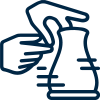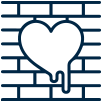Program REY Center
The Resilient Empowered Youth Center
Program Youthability Training
Practice social skills in order to create the self-confidence necessary for workplace success.
The REY Program (Resilient Empowered Youth) is an early intervention and prevention program for at-risk youth in Humboldt County. Our program offers Social-Emotional Learning curricula, recreational and enrichment activities, agriculture education and career exploration opportunities.
Social-Emotional Learning
- Empowering Youth with the Concepts of Personal Responsibility and Resilience.
- Cultivating Healthy Self-Concept
- Defining their Value System.
- Developing Healthy Communication skills
- Developing Relationship and Conflict Resolution Skills
Agriculture Education
- Contributing 0ur Produce to those in Need within our Community
- Learn about our pollinators' role in agriculture
- Learning about the Soil Food Web-Soil Regeneration through Soil Carbon Sequestration.
- Learning about Nutrient Density in Food and How Food is used as Medicine.
Agriculture Education
- Independent Living Skills Education.
- Collaborating with Local Businesses, Higher Education Institutions and Fellow Non-Profit Organizations to Explore Careers and Support Other Community Projects.
What do we offer?
Sewing Classes
Cooking Classes
Homework Help Station
Gardening Classes
Beginners Art Class
Music Classes
Pottery Classes
Coming soon:
Pottery Classes
Music Classes
Street Art Classes
Motivational Training
Soo Bahk Do Martial Art Training
Founded in 2006 by foster parent and youth advocate Rose Baker, we provide structured support, inclusivity, and meaningful connection to promote education, training, and self-empowerment for low-income youth and young adults, including those emancipating out of foster care.
This program combines paid retail work training, life skills, confidence building, job search assistance, and community engagement.
Who is able to participate?
Disadvantaged youth and young adults, ages 16–24, with histories of abuse, domestic violence, drug use, juvenile detention, homelessness, and foster care.
"*" indicates required fields










